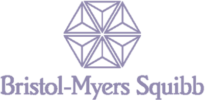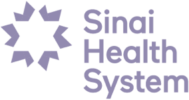Lean six sigma certification is widely recognized as a mark of professional excellence. However, while there’s a good chance you may have heard of the methodology itself, you may not be familiar with the finer details, not least the benefits of Lean Six Sigma when it comes to your career. In this article, we take a closer look at the impact that Lean Six Sigma can have on an individual level.
How Lean Six Sigma Can Benefit Your Career
Achieving Lean Six Sigma certification can benefit your career in a number of ways; here are some of the main ones.
Facilitates general career advancement
Benefits of lean six sigma certification include the ability to identify, understand and resolve problems, a desirable skill from the perspective of employers. In the face of strong competition for jobs and promotions, it can make the difference between being chosen or not.
Confers enhanced leadership skills
The in-depth organizational understanding gained from Lean Six Sigma training prepares you for the role of leader. Amongst other things, you understand the need for business efficiencies and how to achieve them, while also maintaining the level of service and quality customers expect.
Opens doors to management positions
Skills gained as benefits of Lean Six Sigma training include financial management and risk assessment capabilities, key middle and high-level management skills that not all managers at those levels possess. That means certified professionals are well-placed to achieve senior-level positions.
Formal training confirms a sound understanding of the principles
While some may have a broad grasp of the principles of lean six sigma, formal training and certification assures employers that you are skilled in applying the methodology correctly. That means they can be confident you won’t waste time pursuing the wrong core issue, for example, but will focus on the real issues.
Certification is applicable across industries
The methodology involved in lean six sigma applies to a range of industries, from electronics to financial services and more. These are genuinely transferable skills. That means that certification opens doors, your employability is boosted and you have more opportunities at your disposal.
You gain demonstrable new skills and knowledge
To achieve certification, you will have demonstrated that you can correctly apply the methodology. Afterwards, you will gain confidence and maturity as you continue to use your new skills and knowledge on a regular basis. Identifying issues and taking appropriate corrective action will translate to a culture of continuous improvement, to the benefit of the organization.
You have the ability to improve your company
Lean six sigma training and certification includes hands-on experience, meaning you have already demonstrated that you can use the methodology to achieve change. Whether that change involves driving organizational growth, reducing errors and waste, or changing company culture for the better, you have the proven capability to achieve that.
What is Lean Six Sigma?
Lean six sigma is a hybrid of two different but complementary methodologies: Lean and Six Sigma.
Lean is a process improvement methodology used to optimize organizational systems by eliminating or reducing common types of “waste” – defined as anything that doesn’t offer value. The result is that organizations operate faster, while delivering better value and becoming more profitable.
Six Sigma looks to identify and eliminate those things that cause variation in a process – causing scrap and waste, for example – so that the outcome can be confidently predicted every time. It puts customers first, with a focus on identifying and meeting their needs. The aim is to ensure that when changes are introduced to the process, the customer experience is either maintained or enhanced.
Lean Six Sigma integrates the two methodologies as, together, they are stronger. Combined, they make a comprehensive system allowing organizations to enhance quality while reducing costs, with the ultimate goal of creating continuous value for the customer. This offers strategic advantage.
More specifically, an organization that adopts Lean Six Sigma can expect to more quickly achieve strategic planning objectives; enjoy a boost in productivity; see an increase in both employee satisfaction and employees’ desire to improve quality and customer value; enjoy high customer loyalty and retention rates; and enhanced, more engaged supply chain management.
Lean Six Sigma is a tiered system incorporating a range of levels of certification. There is likely to be a particular level that suits your needs – or that suits your needs at this time. However, while you might choose to upgrade to a higher-level qualification at some future point, you don’t have to work your way up through the hierarchy.
Lean Six Sigma Certification Levels
Yellow belt: introduces the methodology and explains how and where to apply it. Useful for those who will work as a project team member or want to learn the basic improvement methodology.
Green belt: imparts understanding of advanced analysis, facilitating the identification of problems within an organization that affect quality and providing the means of resolving them.
Black belt: creates experts who have mastery of the lean six sigma methodology and are agents of change. Black belts also mentor and train yellow and green belts.
Master black belt: produces people capable of providing strategic guidance to leaders and ensuring lean six sigma projects are aligned with an organization’s strategic objectives to further drive continuous improvement. This is the highest level of accreditation.
Where next?
At Juran, our range of lean six sigma programs combine self-paced learning with live webinars and one-on-one coaching with certified Juran Master Black Belts. Get in touch with us today to find out more or register your interest via the relevant belt page below.






